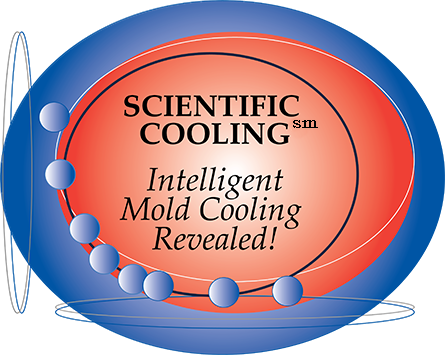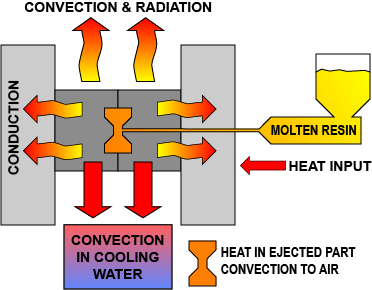Contact SmartFlow USA
Learn more about our highly effective injection molding process training.
Contact us for questions or to learn more about our next event!

This comprehensive, in-person class is for designers, mold builders, tooling engineers, and mold technicians who want to better understand and control the effects of mold cooling resulting in a more robust mold design, mold build, and molding process.
Participants will learn the tools needed to analyze Heat Energy and the Mold Cooling Management required to produce consistent, profitable parts. Students will learn to systematically challenge the design of new molds and uncover issues with existing molds through the development of best practices for Mold Cooling Management.
Class materials are developed by Mark Brown and Phil Burger in collaboration with Technical Partners and industry experts. The class will be led by industry veteran engineer, Jose Flores of PRISSA, Engineering Processes and Services.

Participants are encouraged to bring details of their cooling challenges for group discussion and analysis as time permits. Cooling details such as flow rate, cooling circuit diameter, and length may be analyzed in class. Actual parts are welcome along with material specifications, melt temperature, ejection temperature, and cycle times. This type of group discussion contributes to a valuable learning experience.
After successful class completion with a minimum test score of 70%, you will earn a Scientific Cooling Certificate. You will have the tools to implement Scientific Cooling principles in your molding process.
01.
Learn energy principles in relation to specific polymers
02.
Understand how Heat Transfer and Energy Flow affect part quality and cycle time
03.
Apply formulas to solve heat transfer calculations for different materials of molds and parts
04.
Understand Reynolds Number's relationship to Turbulent Flow.
05.
Learn how Energy and Water Conservation can be supported using heat transfer calculations.
06.
Study the 3 R's of Scientific Cooling to develop and maintain efficient cooling setups and processes.
07.
Investigate the biggest impact on cooling: Part Design, Mold Design, or Processing.
08.
Discover water chemistry's effect on cooling efficiency and why mold maintenance is so important.
09.
Receive an introduction to pump performance curves.
We’re working on our 2026 schedule. Check back later for updates.
A proficiency in Algebraic principles is needed for successful completion of the math covered in this class.
All you need is a basic calculator. Usually, a cell phone calculator is sufficient.
Read Phil Burger’s latest article
“An Engineering Approach to Mold-Cooling Circuit Design“.